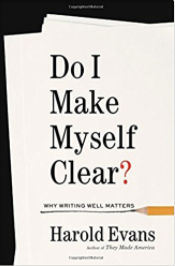Getting things as right as you can with a BuzzFeed copyeditor
“Getting Things As Right As You Can” is the title of a chapter in A world without whom, a book by Emmy J. Favilla, BuzzFeed’s global copy chief. As the book’s title suggests, Favilla disagrees with strict grammarians, especially if the support rules that are at odds with how people actually use language today. For example, one of her chapter subheadings uses the hashtag #banwhom.
Don’t worry about some rules
Favilla’s attitude may horrify some of my readers. She says there are matters of writing style that you shouldn’t lose sleep over. That doesn’t only mean skipping the use of “whom.” It means not obsessing over issues like “how to spell a word that has acceptable variations, whether to style abbreviations with or without periods, use of the serial comma, whether to capitalize or lowercase words of a certain length in titles, etc.”
I confess that I am a bit horrified because I get excited over some of the issues Favilla lists. On the other hand, I value clarity and conversational language over rules that undercut those values. I recognize that some “mistakes” are worse than others in their effect on your readers.
Do be consistent in your usage
Thank goodness, Favilla does believe that consistency is important. She says,
…it’s important to strive for consistency (across a publication, yes, but at the very least within a story), and there are certain things, like technical errors and typos, that may not necessarily diminish your credibility as one-off instances but, cumulatively considered, could make your work and the publication you represent look sloppy and careless. All of these things can lead to a lack of respect for stories you produce in the long run—or at least less than you have the potential to garner—because if you don’t care enough about the small things, how are you to be trusted with the bigger ones?
If you’re not a professional writer, I think “getting things as right as you can” and using a consistent style are good goals. You don’t need to drive yourself crazy to adhere to obscure rules. Making your content compelling, clear, and concise matters most.
Should you read this book?
This book is a fun read. I recommend it for writers who care about usage issues, even if you’re a grammar traditionalist.
Favilla offers insights into many of the classic questions of writing style. It also delves into many newer issues, such as language usage on social media.
Disclosure: If you click on an Amazon link in this post and then buy something, I will receive a small commission. I link only to books in which I find some value for my blog’s readers.
June 2018 update: I edited this post to fix a typo.





